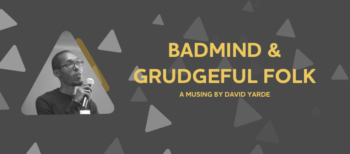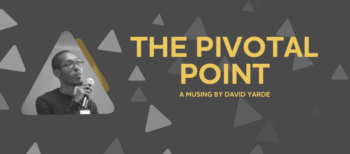It’s always a joy to talk about anything design related. Especially when it’s design thinking.
But to talk about design thinking with your local AIGA chapter and a room filled with passionate creatives and nonprofits? Priceless.
However, before I get into all the juicy details of what went down, let’s take a look at what design thinking actually is.
It’s certainly a pretty hot buzzword and one many often hide behind in an attempt to appear smart.
Currently sitting in the middle of classical design practices and creativity at scale, design thinking is an extremely useful way to navigate tons of ideas and possible solutions down into feasible paths of execution.
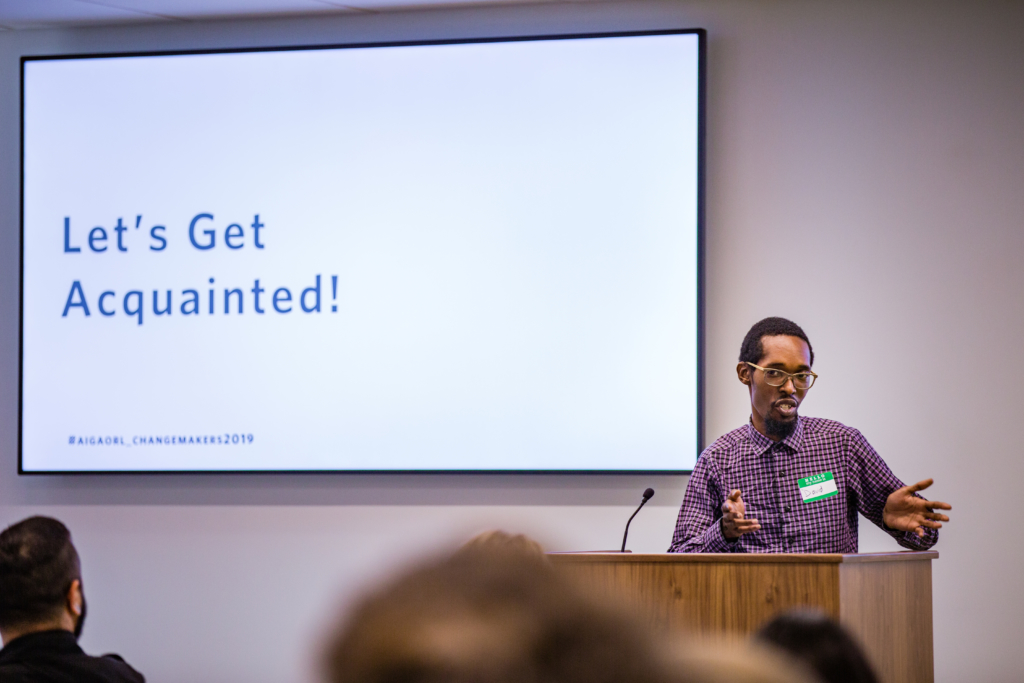
In short, design thinking is an action-oriented approach to generating creative solutions to complex problems.
So action is what we took to visualize and start on solutions for things like marketing strategies and campaigns, brand organization and positioning, business models, and much more.
We started things off by diving into empathy mapping on the individual layer before moving into applying empathy towards the users.
Usage is quite simple and best used by applying empathy to yourself first.
Otherwise, how will you be able to apply empathy and understanding to the user?
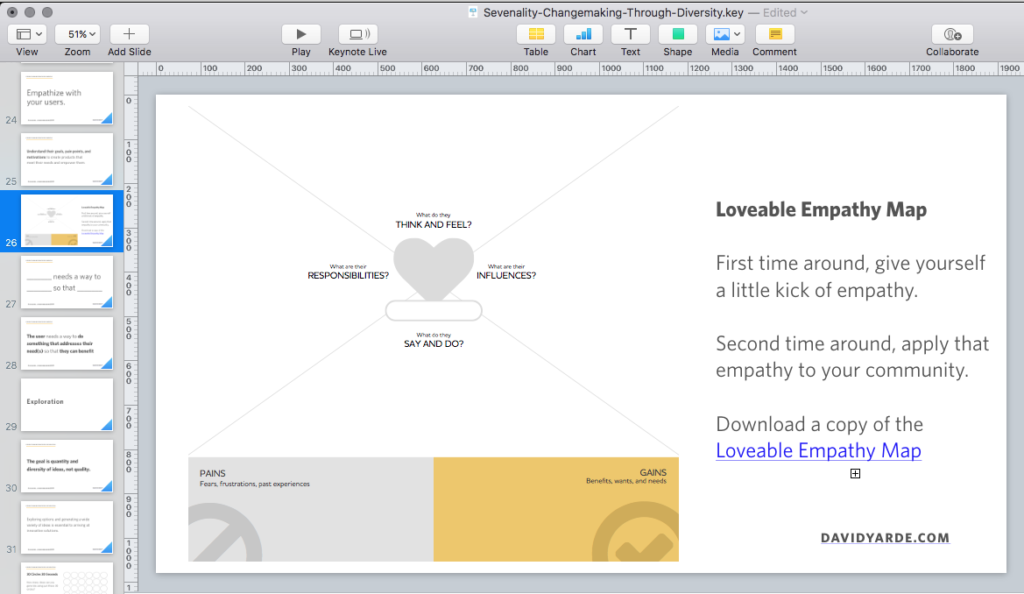
Download the Loveable Empathy Map
When using an empathy map, questions like “What Do They Think and Feel?” or “What Are Their Influences?” open key doors to understanding and connecting with our ideal communities as well as customers.
When applied to yourself, it opens up key perspectives to the stories you tell yourself and how you tell those or your brand stories to others.
Paired together and they ignite a connection that allows for things to remain relevant and valuable in a way that conventional brand and design strategies tend to miss.
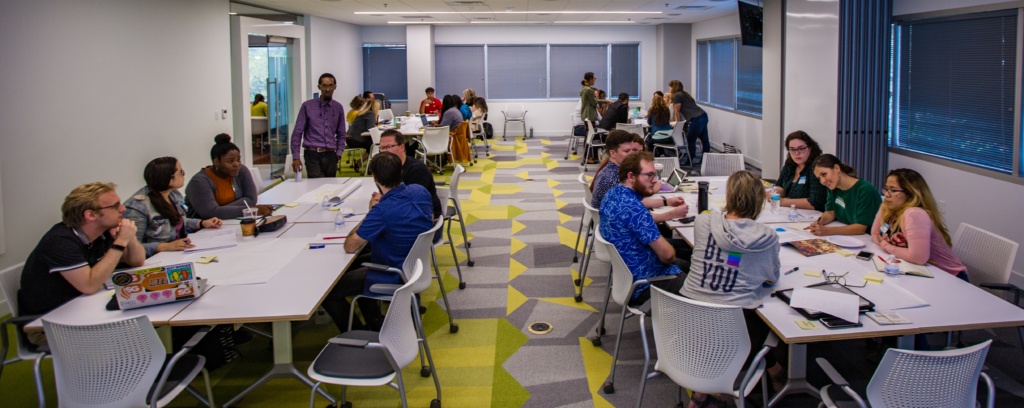
As the day progressed, participants of the AIGA Changemakers workshop also had the opportunity to break into various groups and apply the information given earlier in the day.
It was truly impressive to see each team set clear goals, responsibilities, and take action on numerous items within such a short amount of time.
Outside of the amazing energy from start to finish, it was also a consistent experience of diverse thoughts and perspectives.
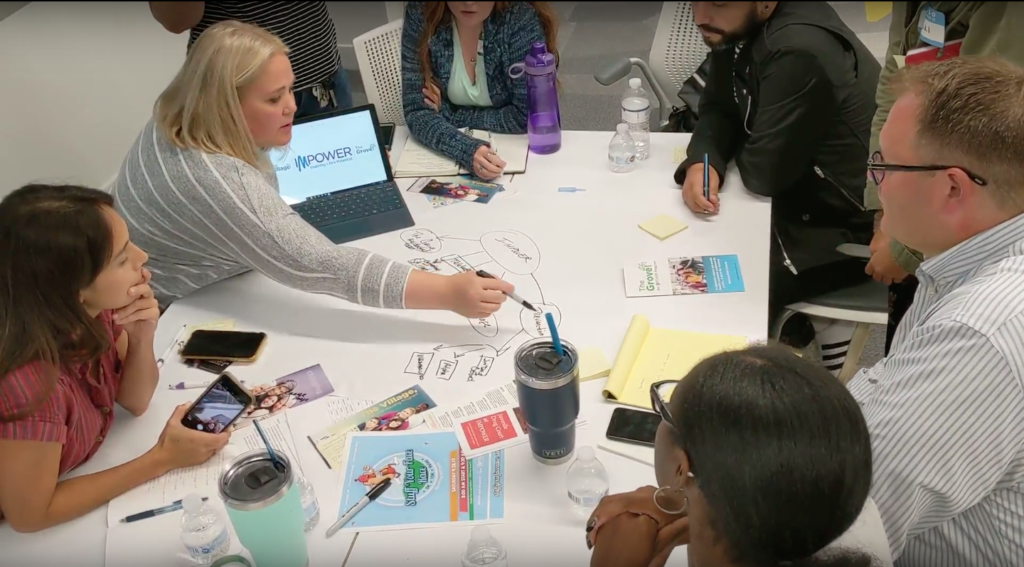
It didn’t what age, gender, or race was present. It didn’t even matter how much experience you had either, everyone had something valuable to bring to the table and was respected for it.
If anything, that’s how our communities should always be.
Especially if you’re looking to improve the organizational culture from being outdated to one that’s relevant, diverse, and inclusive.
It was also pretty fun to switch things up and pull the online community into the mix of things as well.
Whether it’s mental health, building communities, or even providing resources to remote areas of the world, when done right, design thinking can be a powerful asset to any individual or organization.
While I can go on about design, processes, tools, and how amazing of an experience it was as a creative, I suggest you poke through the slide deck below.
If there’s one thing you take away from this, I hope it’s this.
Design thinking isn’t a process, it’s a lifestyle.
One that helps to reduce risk, improve creativity, boost opportunities for innovation, and increases sustainability.
So where are you going and how are getting there?
Answering that is one of the best ways to start incorporating design thinking into your creative flow.
Looking to have a design thinking or similar workshop with your team or organization? Send me a message!
